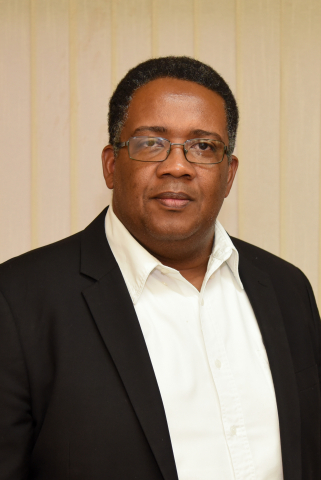
Professor Michael Taylor, Dean of the Faculty of Science and Technology, The University of the West Indies
The World Academy of Sciences (TWAS) elected 47 new Fellows to their academy this year and among them is Jamaica’s Professor Michael Taylor, Dean of the Faculty of Science and Technology at The University of the West Indies. Prof. Taylor was elected for his work in the field of Earth, Climate and Environmental Sciences. This year’s class includes Fellows from 25 countries and include a Nobel laureate.
The election of the new Fellows will be effective starting on January 1, 2024, bringing the total TWAS membership to over 1,400.
For 40 years, The World Academy of Sciences for the Advancement of Science in Developing Countries (TWAS) has been a leading force in developing crucial scientific capabilities in some of the most underdeveloped countries in the world. Professor Taylor was nominated for his research aimed at filling a Caribbean climate information gap and positioning the region to understand and cope with its threat.
His research includes dynamic theories about Caribbean climate, for example, the associations with large-scale global drivers, the modulating roles of the Pacific and Atlantic Oceans, and the importance of the Caribbean low-level jet. His work has been used for seasonal prediction and in regional early warning systems. He is also a member of the Caribbean Academy of Sciences and has received the TWAS Prize for Young Scientists in Developing Countries by the Caribbean Academy of Sciences – Trinidad, and Tobago, the Anthony B. Sabga Caribbean Laureate for Excellence – Science, the Gold Award: Caribbean Water and Wastewater Association, and The University of the West Indies Vice Chancellor’s Award for Excellence in Research Achievements, among others.
Prof. Taylor considers it an honour to have been nominated and elected. In his words, “It is a recognition not just for me but also for the science of the region.”
About TWAS
TWAS, a global science academy founded in 1983 in Trieste, Italy, supports sustainable prosperity through research, education, policy, and diplomacy. With its partners, it has graduated over 1,000 PhDs and offered hundreds of postdoctoral fellowships to developing world scientists. The Academy also hosts prestigious scientific awards in the global South, has offered numerous research grants, and supports exchange visits for scientists. TWAS is a programme unit of UNESCO.

